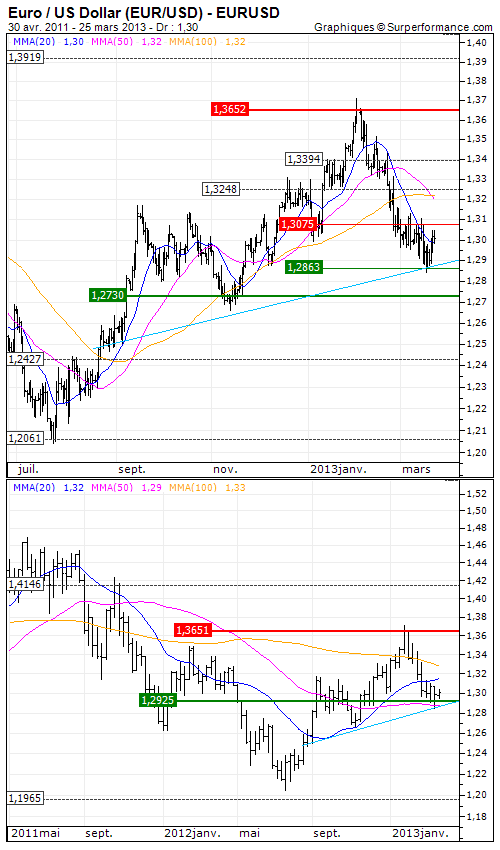Euro / US Dollar (EUR/USD) : Agreement reached for Cyprus
By Mathieu Burbau
In exchange for and international aid of 10 billion euros, the second largest Cyprus bank, Popular Bank of Cyprus (Laiki), will be liquidated and deposits of less than 100,000 euros are transferred to the main country’s institution, Bank of Cyprus. All assets beyond this edge will be frozen in both institutions to complete the sum for the bailout of Cyprus. Thousands of jobs will be cut while the bailout plan questions the Cypriot financial model, which attracted massively foreign funds.
This is also the failure of negotiations with Moscow last weekend that allowed the Troika to take advantage on Nicos Anastasiades, the Cypriot President, in negotiations this weekend. Finance ministers of the Eurozone agreed the text, which will not be submitted to the vote of Parliament of Cyprus, according to Wolfgang Schaüble, because it is a restructuring and not a tax on deposits.
If this event allows the single currency to rise beyond USD 1.30, confidence in the Eurozone should, however, have some problems to settle permanently whereas the incident reminds investors the region is still stuck into an unprecedented budget crisis. The latest statistics from the activity in Europe, including Germany, also show that the Monetary Union is not ready to come out of recession.
Technically, as long as a daily candle does not close beyond USD 1.3075, an event that would invalidate our scenario, the economic environment argue in favor of a resume of the fall of the Euro towards USD 1.273 and we remain therefore bearish.



